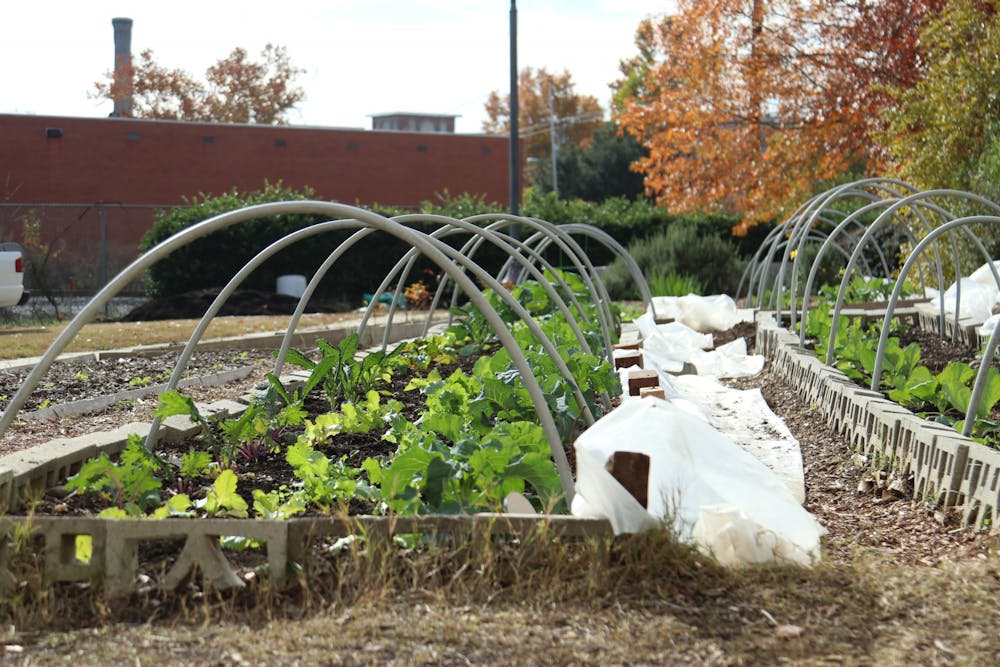As university programs try to make USC more sustainable, student input is needed to overcome obstacles and change campus culture, according to leaders in campus sustainability.
Every three to four years, the university submits a sustainability report, known as STARS, to the Association for the Advancement of Higher Education. Based on the results of this report, the university is scored on a number of sustainability factors, such as public engagement, academic curricula and operations.
Most recently, in 2016, the university was awarded a silver rating, earning 57.04 of a possible 208 points. The highest rating, platinum, requires at least 85 points.
Jackson Eliasek, a student intern in the university’s Office of Sustainability, said campus engagement contributes to a large portion of the university’s success.
“The place where we received the most points is in our student involvement and student engagement, and that's because of Sustainable Carolina and the efforts that other students have made on this campus,” Eliasek, a fourth-year finance and economics student, said.
Sustainable Carolina, the student arm of the Office of Sustainability, is one organization students use to voice their opinions about environmental issues.
The importance of student participation in sustainability was also reflected by former housing sustainability coordinator Laura Anne Hunt.
"The best thing that I could say is that with students that want those services ... They need to go talk about fees, they need to go talk about the sustainability and they need to make sure that they're voicing their opinion. They're not just kind of letting things happen," Hunt said.
Sustainable Carolina’s Green Events Certification program, Eliasek said, is one way students help implement sustainability policies on campus. For an event to be green-certified by Sustainable Carolina, it must meet certain standards in areas such as education, waste management and transportation.
"There are three pillars," Eliasek said. "There's economic sustainability, environmental sustainability and social sustainability, and part of that social sustainability is creating an interconnected community. So with this ... green event certification, we're trying to create a more inclusive, sustainable community."
One barrier in creating such a community, though, has been visibility for on-campus resources, according to environmental studies student and Sustainable Carolina program director Caroline Zerhusen.
“Because our office is in kind of a secluded place, sometimes it's difficult for people to know that we exist,” Zerhusen said. “We get a lot of people that come to us by word of mouth. Or like, they come to one of our events they're walking past, but it's really, yeah, advertising is definitely difficult, and drawing people to our office."
One of the newest initiatives to engage students is the Green Greeks program, which plans to increase the sustainability of Greek Village by decreasing energy use and food waste in the village’s homes.
Tessa Baran, the president of Green Greeks and a geography student, said actual changes would come later, though.
“There’s not a universal way to do any sort of changes. Each house does everything very individually,” Baran said. “So if we can’t change something, what we’re going to do is educate Greek life on why it should be changed and hopefully work towards that future.”
This sort of inconsistency makes forming sustainability plans difficult, according to Sophia Storlazzi, the chief officer of sustainability for the Residence Hall Association. Storlazzi said there were inefficiencies in communicating sustainability information.
“I feel like I've become a facilitator of conversations between administration as well, because there just seems to be a lack of understanding in some of these areas. I mean, that's what bureaucracy does. It's because we're all separated and then we're supposed to have our ways of getting back to each other, and sometimes those get mixed up,” Storlazzi, a third-year public health student, said.
Hunt also said that a unified student vision would be necessary to implement change on campus.
"If we're going to work together to improve and to provide these services ... [students] should get people excited about doing it, but they should educate how to do it right," Hunt said. "If we continue to piecemeal things, it's not going to come out in a cohesive program."

